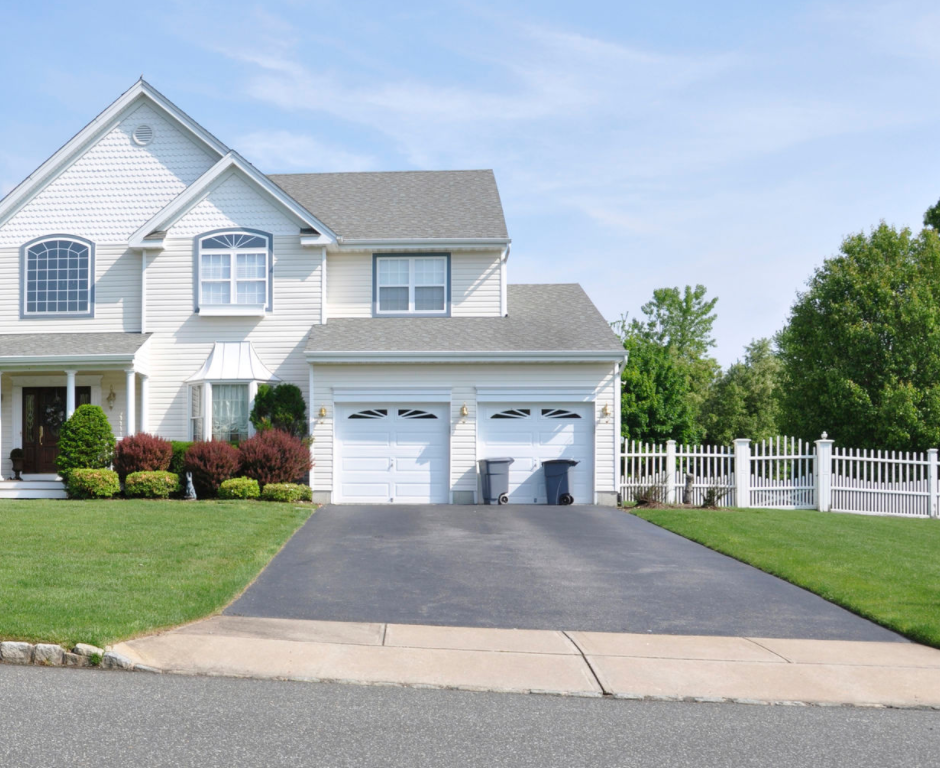Choosing the right material for your residential driveway is an important decision that can significantly impact the curb appeal, durability, and maintenance requirements of your property. Two popular options to consider are concrete and asphalt. Both materials have their own unique characteristics and benefits. In this article, we will explore the advantages and disadvantages of each, providing you with the necessary information to make an informed decision when it comes to selecting between concrete and asphalt for a residential driveway.
Concrete for a Residential Driveway
Concrete is a versatile and durable material that offers several benefits for residential driveways. Let’s take a closer look at why concrete may be a suitable choice for your driveway.
Longevity and Durability
One of the key advantages of concrete driveways is their exceptional durability and longevity. When properly installed and maintained, a concrete driveway can last for decades. Concrete is known for its strength, which allows it to withstand heavy vehicle traffic and resist cracking or crumbling under pressure.
Curb Appeal and Design Options
Concrete driveways offer a wide range of design options to enhance the curb appeal of your home. With various finishes, textures, colors, and patterns available, you can customize your driveway to complement the architectural style of your property. Additionally, decorative elements such as stamped concrete can mimic the appearance of more expensive materials like brick or stone.
Low Maintenance
Concrete driveways are relatively low maintenance compared to other materials. Regular sweeping and occasional pressure washing is usually sufficient to keep them clean and in good condition. Additionally, concrete is resistant to stains and can be sealed to further protect against oil spills or other substances.
FAQ:
- How much does a concrete driveway cost?
- The cost of a concrete driveway can vary depending on factors such as size, design, and location. On average, expect to pay between $4,000 and $6,000 for a standard concrete driveway installation.
- Can you repair cracks in a concrete driveway?
- Yes, cracks in concrete driveways can be repaired. Small cracks can be filled with epoxy or concrete patching materials, while larger cracks may require professional repair services.
- How long does it take to install a concrete driveway?
- The installation time for a concrete driveway depends on various factors, including the size and complexity of the project. Generally, it can take anywhere from a few days to a week to complete the installation process.
- Is concrete a sustainable choice for a driveway?
- Concrete is considered a sustainable choice for driveways due to its longevity and durability. It can also be recycled and used as a base material for new concrete projects.
- Are there any disadvantages of concrete driveways?
- One potential disadvantage of concrete driveways is that they can be more prone to cracking in areas with significant temperature fluctuations. Additionally, concrete driveways may require periodic resealing to maintain their appearance and protect against stains.
- Can I install a concrete driveway myself?
- While it’s possible to install a concrete driveway as a DIY project, it is a complex task that requires specialized equipment and knowledge. Hiring a professional contractor is generally recommended to ensure a proper and long-lasting installation.
Asphalt for a Residential Driveway
Asphalt is another popular choice for residential driveways. Let’s explore the advantages and considerations associated with using asphalt for your driveway.
Cost-Effectiveness
One of the primary advantages of choosing asphalt for your driveway is its cost-effectiveness. Asphalt installations tend to be less expensive compared to concrete, making it an attractive option for budget-conscious homeowners. Additionally, the lower cost extends to repairs and maintenance, as asphalt is generally easier to repair and requires less frequent maintenance.
Quick Installation
If you’re looking for a faster solution, asphalt driveways can be a great option. The installation process for asphalt is typically quicker than concrete, as asphalt sets and cures faster. This means you’ll have a usable driveway sooner after the installation is complete.
Smooth and Flexible Surface
Asphalt driveways offer a smooth surface that can provide a comfortable driving experience. The flexibility of asphalt allows it to withstand freeze-thaw cycles and minor ground movements without significant damage. This flexibility also helps to prevent cracking and potholes.
FAQ:
- How long does an asphalt driveway last?
- On average, an asphalt driveway can last around 15 to 20 years with proper maintenance. Factors such as climate, usage, and maintenance practices can affect its lifespan.
- Can you repair potholes in an asphalt driveway?
- Yes, potholes in an asphalt driveway can be repaired. The process typically involves cleaning the damaged area, applying a patching material, and compacting it to create a smooth surface.
- Is asphalt environmentally friendly?
- Asphalt is a recyclable material that can be reused in various applications. It is considered a more sustainable option compared to other paving materials. However, the production process does have an environmental impact, so it’s essential to consider the overall life cycle of the material.
- Are there any disadvantages of asphalt driveways?
- Over time, asphalt driveways may require more frequent maintenance and resurfacing to keep them in good condition. Additionally, asphalt is more susceptible to damage from oil spills and can soften in extreme heat.
- Can I apply a sealant to my asphalt driveway?
- Yes, applying a sealant to an asphalt driveway can help protect it from the elements, prevent cracking, and extend its lifespan. It is recommended to reseal an asphalt driveway every few years for optimal performance.
- Can I pave over my existing asphalt driveway?
- In some cases, it may be possible to overlay new asphalt over an existing driveway. However, it’s important to assess the condition of the current surface to ensure proper adhesion and longevity of the new asphalt layer.
Conclusion
When deciding between concrete and asphalt for a residential driveway, it’s crucial to consider your specific needs, budget, and preferences. Concrete offers durability, customization options, and low maintenance requirements, while asphalt provides cost-effectiveness, quick installation, and a smooth driving surface. By weighing the advantages and disadvantages of each material and considering your individual circumstances, you can make an informed choice that best suits your needs. Whether you choose concrete or asphalt, a well-designed and properly installed driveway can enhance the aesthetic appeal and functionality of your home.

Gabrielle enjoys writing, exercising, traveling, and meeting new people. She also has a passion for romance novels and smooth lattes.
